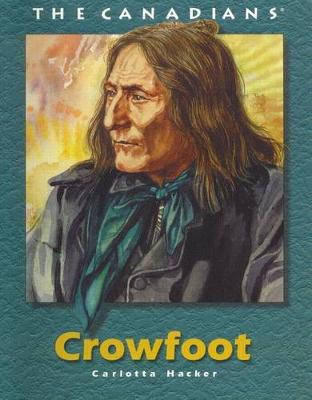When Crowfoot was born in 1830, the Blackfoot Confederacy was a powerful nation living free in the prairies. But as Crowfoot was growing up, earning a reputation for courage and wisdom, the Blackfoot way of life was disintegrating. Traders brought disease and liquor; the buffalo herds dwindled; government incentives encouraged settlers to flock to the west. Humiliated and bewildered, the Blackfoot had to accept government food rations in order to avoid starvation. Crowfoot, born to be a warrior but destined to become a peacemaker, was the Blackfoot spokesman in this time of crisis. Sensing that settlement was inevitable, and committed above all to peace, he encouraged cooperation with the government and the NWMP. He persuaded other chiefs to sign treaty Number Seven, and refrained form supporting the Northwest Rebellion. The task of restraining a people who placed a high value on bold warfare was difficult, and Crowfoot's peaceful policies were sometimes unpopular with his own people. Nevertheless, he succeeded in preserving peace between two very different cultures. His success was due to his eloquence and diplomacy, and above all to his personal integrity.
As historian Carlotta Hacker observes in this thoughtful biography, "Crowfoot stood for courage, loyalty, patience, honesty, generosity - virtues that are as old as humankind."
- ISBN10 1550414674
- ISBN13 9781550414677
- Publish Date September 1999 (first published 1 February 1999)
- Publish Status Unknown
- Out of Print 2 May 2024
- Publish Country CA
- Imprint Fitzhenry & Whiteside Ltd
- Edition Revised edition
- Format Paperback
- Pages 64
- Language English
